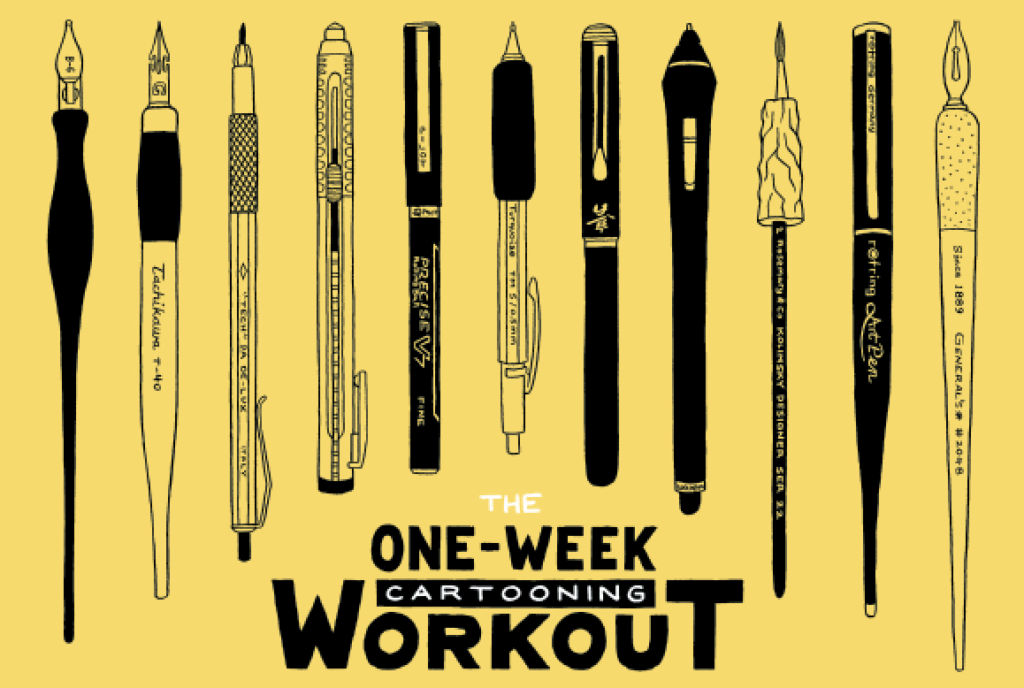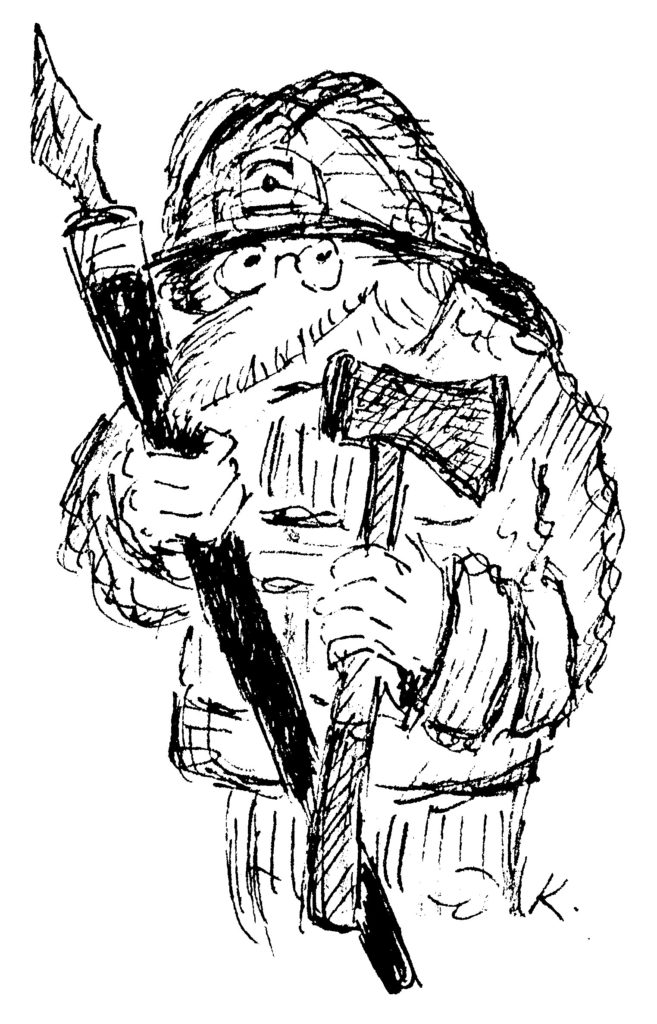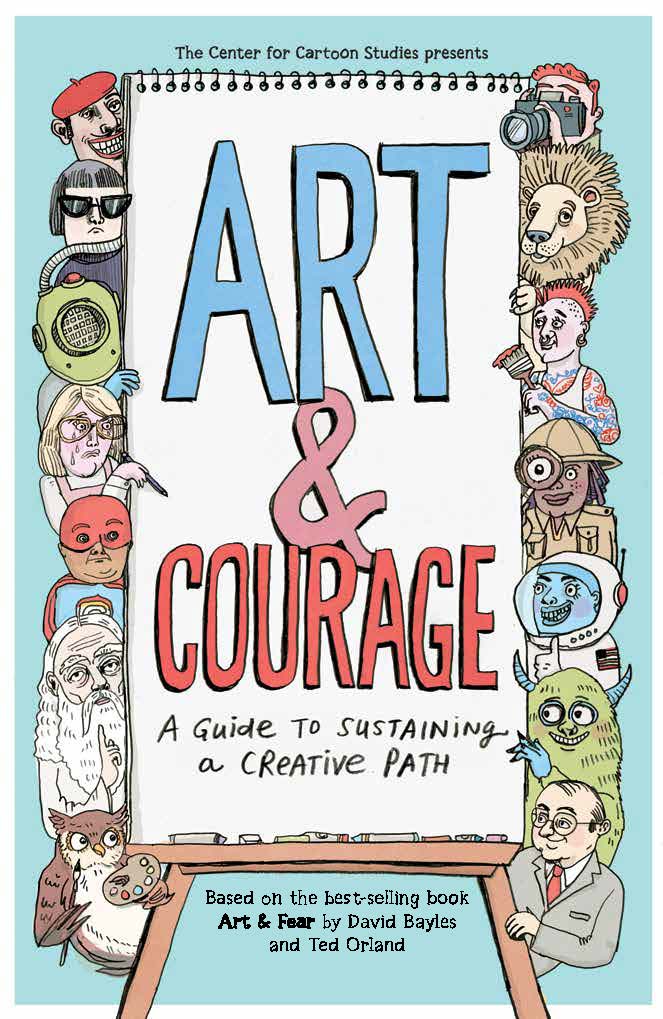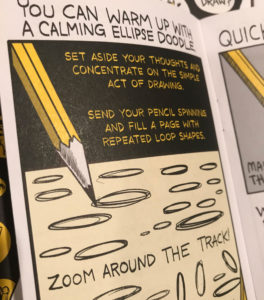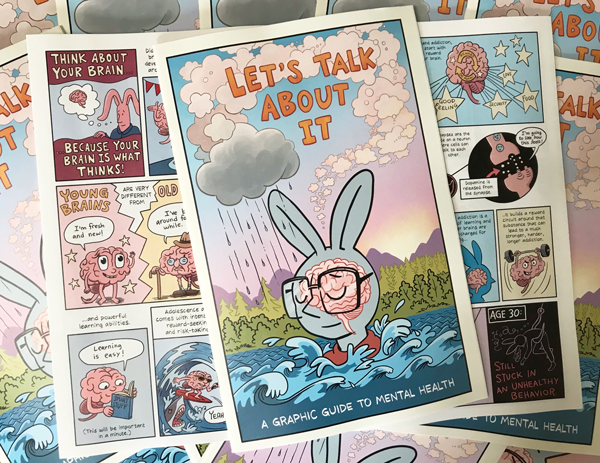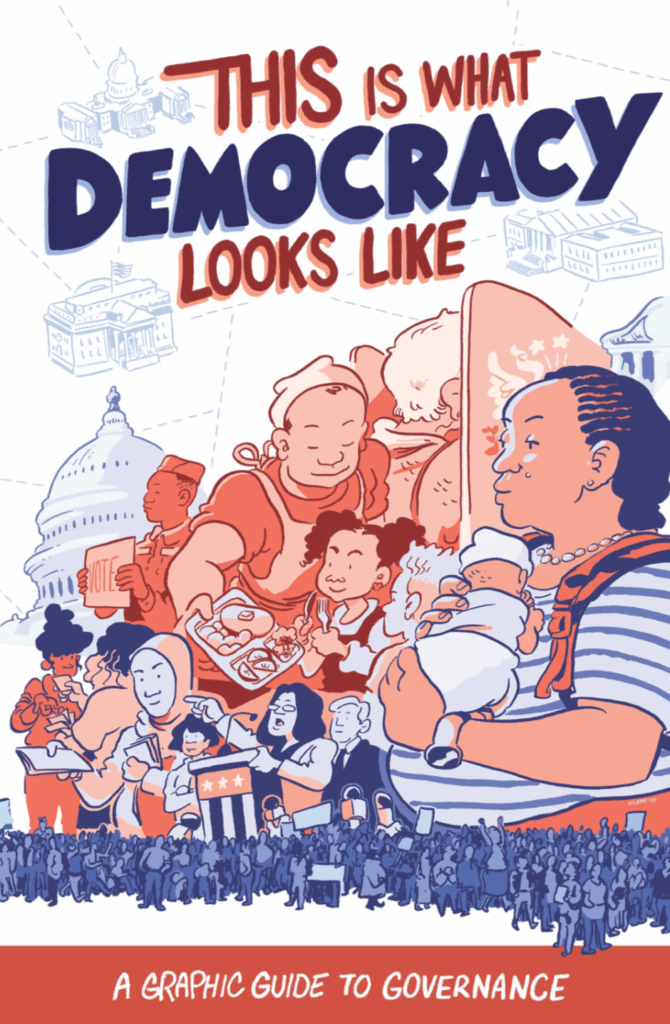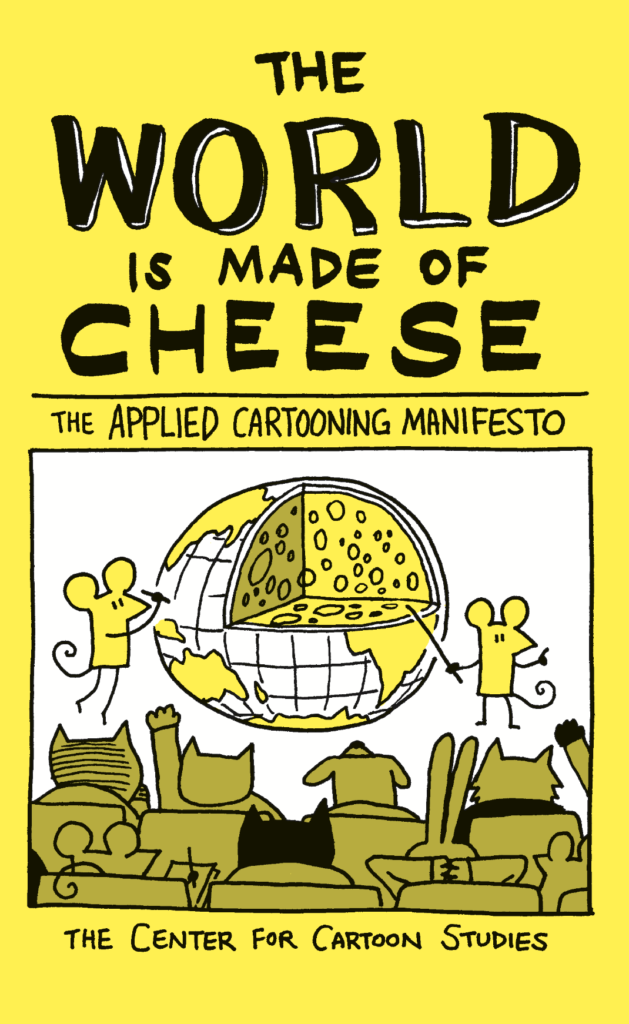October 14, 2018
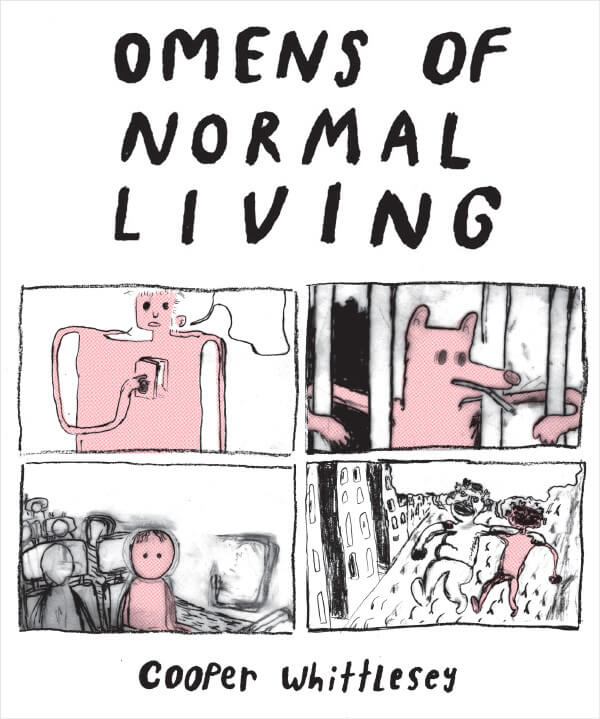
Cooper Whittlesey ′16 comic Omens of Normal Living was release by Uncivilized Books in 2017. He did the following interview with Angela Boyle ′16.
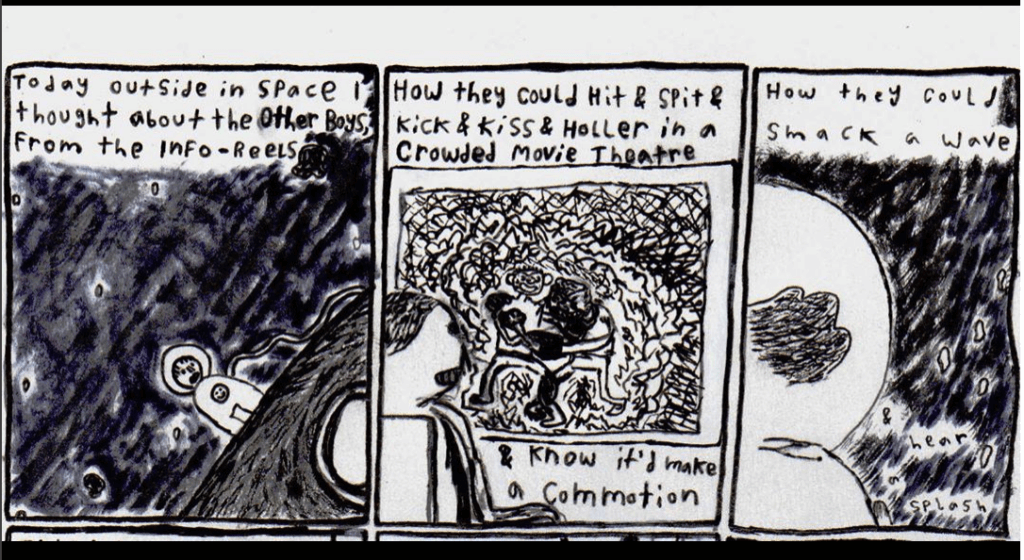
From Cooper’s “Rough-House Rocket,” which will be in the newest issue of Reilly Hadden’s ′15 Astral Birth Canal
You were interning at Uncivilized Books, a small-press comic publisher in Minneapolis, MN, for a year from the summer of 2016 to the summer of 2017. What sort of work were you doing for them?
I stapled a lotta books, put books together, mailed ‘em, went to cons, and helped sell ’em.
You were still interning when your book Omens of Normal Living was published. Did you get to work on your own book?
There were two versions of Omens published. The first was published while I was still there as an intern. With that, I stapled it and stuff. It had pink, bendy cover title letters that my buddy Kurt [Austin] made, and no chapter titles. It sold maybe one copy to my dad or something. The pink title font kinda misrepresented the book, plus I didn’t have chapter-headings, causing it to read as a book of short stories when it is 100% essential in my opinion that it be read as four chapters, each representing a different period of life.
So a few weeks later I made chapter titles and a cover title that boomed loud and black with what I hope is enough authority that “Omens of Normal Living” is a very specific, very intentionally-worded encapsulation of the contents. At this point, there were some newer interns there to fill my space, and they packaged that final version. It sold better at shows and has sold really well online (thanks especially to my being a totally shameless self-promoter).
At 7×8.5 inches, this comic has small dimensions for you. How did your drawing differ for this comic compared to your previous mini-comics? Will you go back to the larger sizes for self-published work?
At school, I used to draw small and then print it a bit bigger, and we did it the opposite here, which I think I like better? Mistakes certainly seem less obvious, and in certain ways it seems like when stuff gets a little more pressed together it looks more like a cohered world. The big stuff back in the day was because I knew it was just for the small world of CCS/my class, where it is a gentle world and comics are valued and carried into class and the library like fragile newborn babies. It was about just bringing the work to be seen. When I left CCS and White River Junction, I remember feeling like that old book guy with a rat or a crow or whatever in the Shawshank Redemption who gets out but it’s a different world and it’s hard to stand. Outside of that wonderful place, there’s jutting objects all over. Cups spill, stuff gets left on floors, people aren’t in the same place. Not only are they not automatically there waiting to see what you’ve got next, they probably don’t even know you exist, and even if they do, they very likely don’t care. I think a big book helps to yell “I exist” but is also kind of a big eff-you to convenience. I moved to Chicago in June and nobody wants to carry an 11 x 14 FRICKING ALTERNATIVE COMIC BOOK GRAPHIC NOVEL on the dang subway, no way, no way.
What did you learn at CCS that was the most useful in this internship?
Basically, how to make a comic at all. Before CCS, I had not the patience to go the distance or the understanding of the form’s inner workings to make such a long trip worthwhile. If anybody reading this thinks they want to make comics and is considering going to CCS, good lord: do yourself the favor and apply. It’s the best decision I ever made.
Did you enjoy the process of publishing through a publisher?
God, god, god, yes, I loved it so much! I have bipolar disorder, and it’s really easy for me to fall into bed-bound, miserable “I can’t do it,” or “why would I even want to.” It was so helpful to have someone older and wiser counting on me and believing in me, and at times even kinda doubting me so that I really had to prove his faith well-founded and both of our doubts wrong.
It was helpful too to be working for a publisher with what I believe to be a pretty strong and cohesive curatorial vision because it helped me hugely in defining the parameters of what kind of content would be right to put out through them. I read almost every Uncivilized book and was like, “What is the Uncivilized Book?,” “What is the Cooper Whittlesey Uncivilized Book?” And it turned out to be a project that was very positively challenging and educational that I would NEVER have endeavored to accomplish had I not had those self-set guidelines.
Anything else we should know?
I’d really like to do a few shout-outs. Thanks to Sophie Yanow ′16 and Lilly Richard for getting me the job. Thanks to Tom Kaczynski for giving me the job. Thanks to Jordan Shiveley for putting up with me at cons. Thanks to Lilly Richard and Clara Lucie Jetsmark for working with me, and thanks to Kurt Austin for the IMMEASURABLE help with design, morale, and more than he signed for.
Tags: Cartoon Studies, Cooper Whittlesey, interview, Minicomic, Omens of Normal Living, Tom Kaczynski, Uncivilized Books
